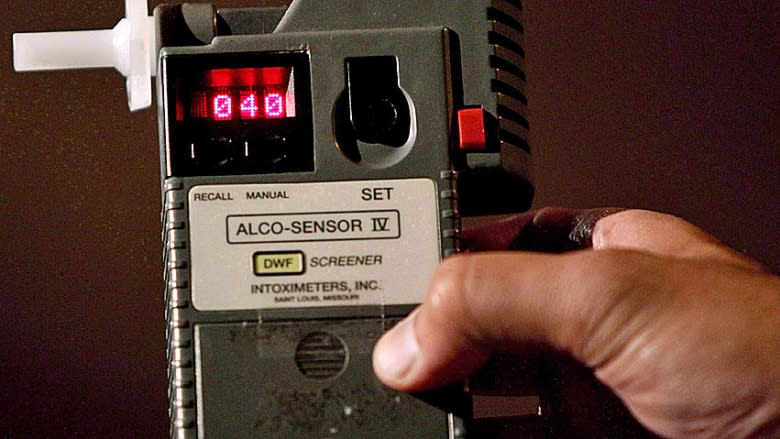P.E.I. incarceration rates above national average for 5th year
For the last five years P.E.I. has been sending people to jail at a higher rate than the national average, according to numbers released by Statistics Canada earlier this month.
This despite having a violent crime rate well below the average.
In 2014/15 the Island's incarceration rate per 100,000 population was 88.93, compared to 85.46 nationally.
Because P.E.I.'s population is small, the numbers fluctuate a lot. But a look at the last decade, as compared to the decade before, shows an increase of 13.3 per cent in the incarceration rate, as opposed to just 7.5 per cent nationally.
The biggest difference is in the number of people serving sentences as opposed to those on remand. That's up 21.2 per cent. Nationally it fell 11.5 per cent.
Crime rates, incarceration rates unconnected
Jean Sauvageau, a criminology professor at St. Thomas University, said even with combining whole decades at a time, P.E.I.'s numbers are small, and variations over time have to be looked at carefully.
But he said he is not surprised that incarceration rates appear to be going up even as violent crime rates are falling.
"Punishment rates hardly ever have anything to do with crime rates," said Sauvageau.
"There are all kinds of other socio-economic-political phenomenon that take place in society which have been observed to have a much stronger correlation to the rates at which people are sent to jail."
Unemployment rates are more closely linked to incarceration rates that crime rates are, said Sauvageau.
The recession of 2008 may have been a factor in the increase in the last 10 years.
Impaired driving a factor: Province
P.E.I.'s Department of Justice and Public Safety said there are a number of factors that have contributed to the rise.
"Some of the known factors that have contributed to the increased custody over the last decade included significant criminal law reform such as length of sentence for repeat impaired driving, minimum mandatory sentences, and restrictions on the use of conditional sentence orders and credit for time served," said a statement from the department.
The department pointed to impaired driving in particular as a factor.
"P.E.I. is the only jurisdiction in the country where first time impaired drivers receive a custody sentence in most instances — 87 per cent in 2013-14, compared with the Canadian average of 9 per cent," the statement continues.
"Incarceration of first time impaired drivers is a likely contributing factor to higher than the national increase in incarceration rates. For example, in 2015-2016, impaired drivers represented 42.2 per cent of admissions to provincial custody. The good news is that impaired driving rates are down."
Province making changes to bring numbers down
The province said it's introduced a number of initiatives, in an effort to bring down the number of people in custody in the province, including: opening a 48 bed intermittent unit at the Provincial Correctional Centre to accommodate offenders serving intermittent sentences, implementing an electronic supervision program to enhance the capacity to supervise offenders in the community and additional training of custody-based staff and community-based staff.
"These are a few of the initiatives that have contributed to a reduced demand for custody since the peak, and improved provincial parole numbers, and resulted in better offender and public safety outcomes," said the province.
"More access to methadone treatment has also had a positive impact on custody numbers. These types of changes and collaborative activities enable offenders to more quickly access supports needed to reduce likelihood of further incarceration."
Smaller numbers, bigger swing
As for why the effect may be bigger on the Island, "that may be a function of the smaller numbers," said Sauvageau.
It's easier to make a big change in a small number than a large number, he said, which could possibly lead to an exaggerated impact on the Island.
The province also pointed out the Island's small population.
"It's also important to note that in a small jurisdiction, small changes in incarceration rates can account for statistical fluctuations," said the department.
- MORE P.E.I. NEWS | The secrets of writing mystery novels
- MORE P.E.I. NEWS | Island entrepreneurs ready to start pressing vinyl on P.E.I.



